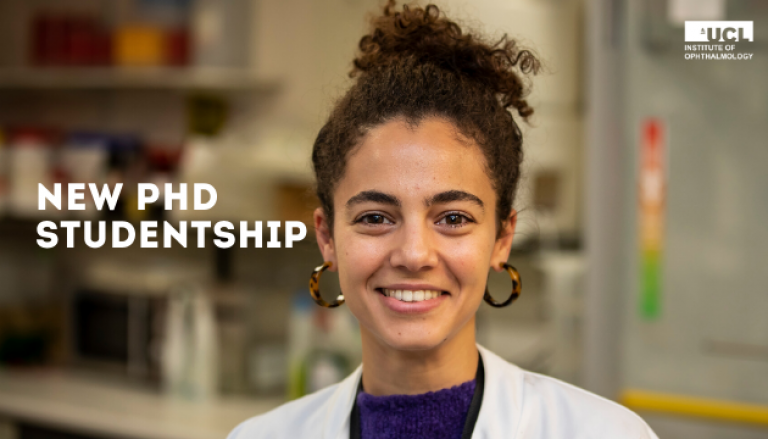New PhD studentship
6 May 2020
We're offering a full-time four year PhD studentship to develop biodegradable microparticles as a novel safe anti-scarring strategy in the eye.

Postoperative scarring is the main cause of treatment failure in the eye. This leads to sight loss in millions of people affected by the two most common blinding diseases in the world, glaucoma and trachoma. This pioneering multidisciplinary project aims to develop an innovative medicinal product consisting of biodegradable drug-loaded microparticles for localised drug delivery to the eye at the time of surgery to prevent scarring. We will design various compositions of the microparticles and evaluate them in a novel engineered 3D conjunctiva biomimetic that consist of human conjunctival fibroblasts and inflammatory cells. Pharmacokinetics and particle degradation modelling will be used to refine the design of the drug-loaded microparticles in readiness for clinical use. In parallel, we will use the 3D conjunctiva biomimetic to elucidate how the drug-loaded particles affect the pro-inflammatory/pro-fibrotic fibroblast response and modulate scarring.
Applications are invited from highly motivated candidates with interests in tissue engineering, 3D imaging, cell biology, chemical engineering, and pharmacokinetics/modelling. This project is part of an established project between the labs of Dr Maryse Bailly (tissue contraction, scarring and mechanoregulation; UCL Institute of Ophthalmology) and Professor Richard Day (biomaterials, regenerative medicine, translational research; UCL Division of Medicine). The PhD student will benefit from state-of-art facilities within the UCL Institute of Ophthalmology and UCL School of Life and Medical Sciences.
The project will provide the PhD student with multidisciplinary training that will be crosscut by stakeholder engagement with industry, management of intellectual property, and regulatory authorities to ensure the product being developed matches end user requirements. The breadth of activity in the project will enable the student to develop a range of technical skills and become articulate in communicating across different disciplines, enabling them to meet growing employment needs in Life Sciences sector.
Applicants should hold, or expect to receive, a minimum upper-second degree or equivalent in an associated subject such as molecular and cellular biology, biological sciences, or engineering. A Master’s degree or previous lab-based research experience is desirable.
Informal enquiries should be made to Dr Maryse Bailly (m.bailly@ucl.ac.uk) or Prof Richard Day (r.m.day@ucl.ac.uk).
Formal applications should be submitted by email in the form of a CV, covering letter outlining motivation, interest, and suitability for this project, and contact details for three referees to Kristina Labanauskaite, Research Degrees Administrator (ioo.pgr@ucl.ac.uk).
Shortlisted candidates will be contacted directly for interview.
The successful candidate is expected to start on 28 September 2020, but there is a possibility that the start date may be delayed.
Eligibility
The full studentship (tuition fees and salary stipend) is eligible to all UK nationals and EU nationals if they have been resident in the UK for at least 3 years immediately before the PhD start date. EU nationals who don’t meet the residency criteria are eligible for a tuition fees-only award.
Application deadline: Friday 8 June
Proposed interview date: w/c Monday 15 June 2020
This studentship is funded for 4 years by the EPSRC and includes UK/EU UCL PhD tuition fees, laboratory costs and an annual salary stipend starting at £17,285.
 Close
Close

